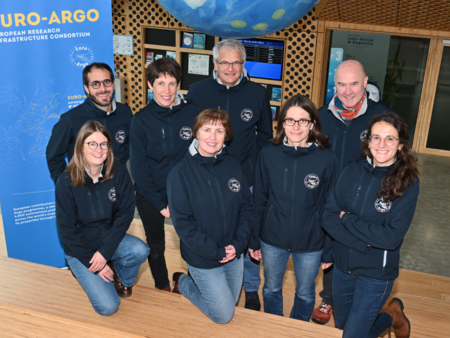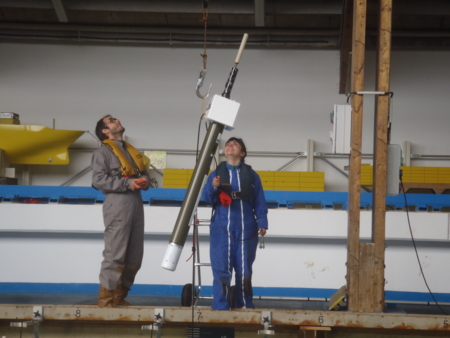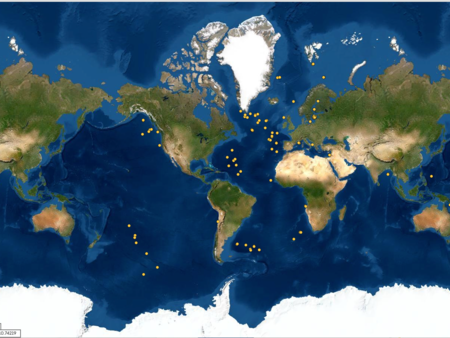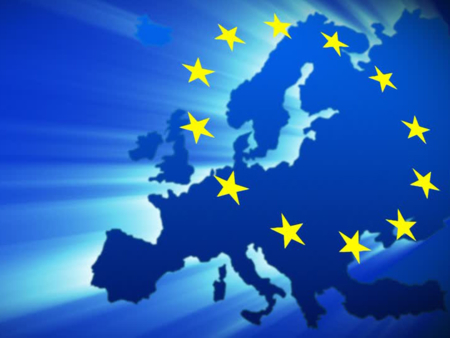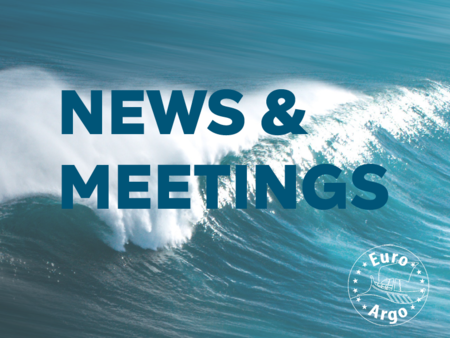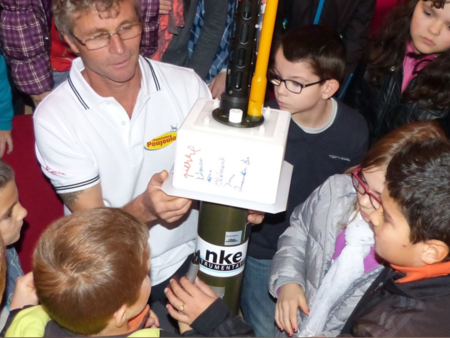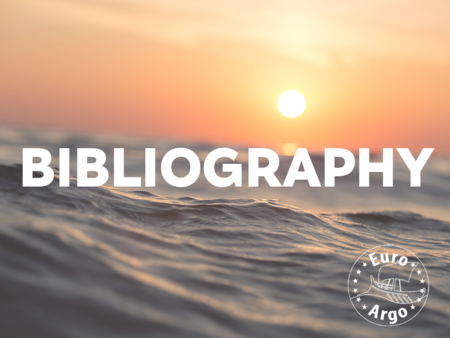Euro-Argo RISE progress over the past six months
This news presents the main results achieved in the Euro-Argo RISE project from July 2021 to December 2021 on four main pillars.
Goals | Concrete results |
Diversify providers to secure sensor provision at a competitive cost in order to sustain and expand the network | Testing RBR sensor for Core floats: The four Arvor floats equipped with RBR CTDs deployed in the Canary Basin (6903075 and 6903076 in December 2020) and in the Baltic Sea (6903709 and 6903710 in May 2021) are still active. Their data are now distributed to users with a QC flag of 1 (“Good data”) after the decision was made at ADMT22 meeting in December 2021 to flag all RBR CTD data that pass the Real Time Quality Control tests to 1. Testing accuracy of sensors for Deep floats: Two two-headed Deep-Arvor (equipped with an RBR concerto on cap and a SBE61 sensor on the side) and one three-headed Deep-Arvor (with a SBE41 sensor on cap and SBE61 & RBR sensors on the side) profiling floats were tested in the Ifremer pool in December 2021. Analysis of the data is ongoing. Next step will be the qualification of the floats in a pressure tank. Once fully operational, these instruments will be deployed in 2022. Testing new BGC sensors: The RAMSES float deployed in May 2021 in the Baltic Sea (6903706) after a first deployment in the Mediterranean Sea is functioning perfectly, with the RAMSES data being among the first profiles of hyperspectral irradiance collected in the global ocean. The float frequency has been relaxed to 6 days for the winter. |
Test Argo closer to the shallow coastal waters to evaluate its potential use in Marginal Seas | The tests carried out by different partners in various coastal regions are continuing, with new deployments and new tools to progress in evaluate the potential of Argo in shallow areas in European marginal Seas. A meeting is planned early 2022 to share experience and start collecting recommendations on the subject. |
Enhance Argo coverage in the high latitude areas | A best practices document is in preparation (D 5.1 due by the end of February 2022) that gathers together the earlier experiences on deployments on high latitudes and the new findings of the parameterizations during the Euro-Argo RISE project. The document aims to be a reference for experienced users as well as introduction for new users in high latitudes. |
Provide configuration recommendations to increase the overall performance of the fleet | The analysis of float survival rates across different perspectives: floats models for the different missions (core, Deep, BGC), deployment areas, key configuration and technical parameters that may impact floats lifetime was finalised in December (D2.6). This work has additionally led to the establishment of a ‘Recovered floats spreadsheet’ and a list of floats which have exhausted their battery level. A ‘Best practices document’ covering the overall life cycle of a float from reception of the float to post-deployment handling is being finalized with the aim to share operational information within the European Argo community. |
Goals | Concrete results |
Engage with new countries to develop national programmes and ultimately increase the Euro-Argo ERIC membership | The report of the Political event (D6.7) organised last spring has been published. Concrete contacts were made with Danish and Swedish teams to develop new national Argo programmes after the regional workshops organized in spring 2021 (D5.2). Denmark will join the Euro-Argo ERIC with the “candidate” status from January 2022! |
Increase awareness among younger generations of the importance of ocean observations for climate change research | The Ocean Observers workshop was successfully held on 29 November & 1-2 December, with about a hundred of participants from all around the world along the 3 days to discuss educational activities around in situ ocean observations (D7.8). |
Reinforce the links and partnership with other ERICs and networks | The report of the Marine RIs side session organised at the 9th EuroGOOS International Conference by HCMR, MI and Euro-Argo ERIC in May is now available. This document reports on discussions held between the 11 Marine RIs representatives on the subject of synergies and axis of cooperation between Marine RIs in the context of the EOOS and the UN Ocean Decade. A common session was organised during the Deep & BGC workshops held in October, dedicated to interactions between Argo (Deep and BGC) and other networks and observing programs (DOOS, GO-SHIP, Oceansites, Ocean Gliders). The questions addressed during this session were: what can we do for each other, what can we do together. Stay tuned for the report! |
Goals | Concrete results |
Ease access to Argo data and increase their usage | One step forward was made for the Argo Online School which is now almost finalized (D7.9). The School has been presented to various audience (2nd Ocean Observers workshop, ADMT22). It will be officially released in the coming weeks and will be hosted on the Euro-Argo website |
Create awareness about the services/products provided by Euro-Argo and attract new users | A second Argo Use Case was defined and is in preparation on “Argo under ice”. National aspects of the use of Argo for the MSFD have been included by Euro-Argo Management Board representatives in the associated Deliverable (D7.13). |
Enhancement of the services for existing users | A Memorandum of Understanding was signed in July between Euro-Argo and Copernicus Marine Service (D7.5). A letter of support from Copernicus Climate Service / ECMWF to Euro-Argo is in preparation (a first draft was provided in Autumn). New products developed within the project are described in Deliverable D7.14 released in December (Argo BGC synthetic profiles, Argo floats recovery web service, Argo App, etc.). |
Goals | Concrete results |
Improve and share DMQC procedures and materials for core & Deep Argo | Euroargodev collaborative framework has been continuously enriched with materials (e.g. finalisation of conversion of the OWC method for DMQC in python, Virtual Fleet tool, etc.). The improvement of the Global Argo reference database used for DMQC was pursued. A new quality control method based on machine learning has been assessed and an implementation plan has been proposed. This method uses a statistical classifier (a PCM: Profile Classification Model) to organise and select more appropriately reference data for the quality control of an Argo float (D2.4). |
Improve the BGC data processing workflow at the European level | Several options proposed within WP4 workpackage for the organisation of BGC Argo data management at European level were discussed with Euro-Argo Management Board during its 21th meeting. |
Enhancement of EOVs | Work performed by Euro-Argo RISE partners for the enhancement of BGC quality control procedures for Chlorophyll-A, Nitrate, Suspended particles, Oxygen, Irradiance was presented and agreed at international level during last ADMT22 meeting (D4.2 to D4.6 & D4.10). |
Conclusion
During the last semester, work has progressed in all the different aspects of the project. December was especially intense, with the submission of 13 Deliverables to the European Commission, among the 15 Deliverables submitted in the period! Most of the work performed – more especially on subject related to Data Management and outreach/communication - was presented to the Argo international community during the 22th Argo Data Management Team meeting (ADMT22 meeting), an important milestone for the project.
Work is continuing towards the main pillars: see you in 6 months for new results!
Deliverables
During this period, 15 more deliverables were produced and submitted to the EC:
Workpackage | Deliverables |
WP2 | D2.4 Performance assessment and implementation plan for a new DMQC method based on machine learning (for temperature and salinity) D2.6 Recommendations to increase the overall life expectancy of Argo floats, based on at-sea monitoring fleet behavior monitoring, assessment and report (including a review of metadata that impact life expectancy: specific float configurations, batteries) |
WP4 | D4.2 Recommendations for enhancement of Chla QC Methods D4.3 Recommendations for enhancement of suspended particles QC Methods D4.4 Recommendations for enhancement of Irradiance QC Methods D4.5 Recommendations for enhancement of NO3 QC Methods D4.6 Recommendations for enhancement of O2 QC Methods D4.10 Report on use of remote sensing to improve DM QC |
WP5 | D5.2 Progress made on engagement with countries surrounding the Arctic Ocean |
WP6 | D6.7 Marginal Seas political event report |
WP7 | D7.5 MoU with CMEMS D7.8 Report on Ocean Observers workshop D7.9 Online Argo School D7.13 Report on the potential of Argo to help in the MSFD D7.14 Report on new products |

